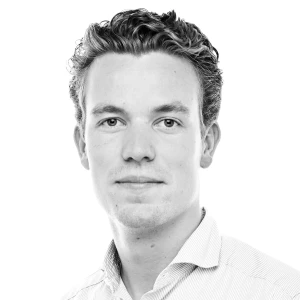When you make it to the third and last round (with partners), is it possible to completely blow things up? Or is this round more to do a "final check" on your aptitudes?
When you make it to the third and last round (with partners), is it possible to completely blow things up?


Hi Anonymous,
if you mean incurring the risk of not receiving an offer, yes, that's totally possible. Indeed, only some of the people invited for the last round will receive an offer.
The structure of the final round is actually the same as the previous one (fit + case+ your questions); however, there is far more emphasis on communication and fit. Sometimes, you won't cover all the parts (eg - you may have a fit-only interview) but there is no way to know this in advance.
Specifically, the main difference you will find in a final round with partners is that at that stage they will:
- spend more time on fit questions and your alignment with the company
- check more closely your communication (eg how you react to challenging questions)
- may not have a “proper” structured case to present – during my final at BCG I had one interview which was made by two market sizing questions and a brainteaser, without any business case. That's because at the final they know you can structure and crack a case (you passed 1 or 2 rounds already) and are more interested in your logic, personality and fit with the company
So in order to prepare I would concentrate on:
- Review in details your fit stories – they will matter more than in the first round. In some finals I had almost exclusively behavioural questions
- Work on your communication (reaction under pressure, how to gain time when you do not have a structure ready, connect with the interviewer, etc). This is something you can test almost exclusively in p2p mocks with peers/experts.
- Prepare on cases as you did for the first round. More market sizing practice could be useful to think outside the box if you get unusual questions.
Hope this helps,
Francesco

If it wasn't "possible" to blow it, they'd have extended you the offer in the previous round. Yes, you have done the hardest by now, but it is not over and this last interview is as important as the other ones, not to be taken lightly

Hi,
The short answer - even more likely than during the first rounds.
In the final round, I would expect a bit more structured and demanding approach to the fit part. The partners in the last round are more experienced and they will challenge every single detail of your story. So make sure that you have a couple of backup stories. Thus:
1) Make sure that you've prepared everything: A story about yourself, motivational questions and the main FIT stories. Also, don't forget about your questions to the interviewer - you'd rather have an interesting conversation and score some point instead of a simple Q&A session
2) Then go through each story and think of the additional questions the interviewer may ask. It’s important since additional questions will take up to 50% of the interview. Try to remember the main details and facts and make sure that you know how to explain the key concepts quickly. Test your stories with your friends, ideally consultants, and ask for their feedback. There can be multiple groups of additional questions:
- The interviewer may be interested in details about the context
- He may want to check whether this was your effort or more sort of a team effort.
- “Have you faced any difficulties while implementing your solution?”- Typically an interviewer would like you to tell him how you’ve overcome those difficulties.
- Your interviewer will check how real your story is. You should be ready to provide even more granular actions, key milestones and a breakdown of potential effects.
3) Now work on 3-6 backup stories. During your interviews, you can then use these stories or adapt these stories to the additional questions your interviewer asks you.
You may be interested, why you need to prepare several stories for each question? At the end of the day, it's not that easy to come up with all of these stories. I've answered here: Repeating Fit Interview Stories
As for the cases - Partners and Directors have their own favorite cases and may even want you to lead the case. The key difference:
- You ask clarifying questions in the beginning and make a structure
- You lead the case through the structure you've prepared a) asking questions and trying to identify the root-cause of the problem in the branch of your structure b) making a transition to the next branch c) proactively calculating the data and making data-driven conclusion from the data they give you d) Making a conclusion when they ask you to finish a case
It may seem to you that these 2 types of cases are different, however, the interviewer-led type is just a simplified version of the interviewee-led case. My advice is to always prepare in the interviewee-led format so that you could solve both easily.
Best
Completely agree with Francesco. Partners will test less your overall "business case" ability, and more your logic, communication, composure, etc. - they will have been interviewing for many years, so compared to more junior interviewers they know exactly what to look for, and how to look for it. More generally, partners may also try to understand you as a person. A friend of mine at BCG in his final round was asked questions like "where do you see yourself in 10 years, not professionally but in your personal life" and when he answered "married with kids" was asked at length about why etc...
So in short - partner round is absolutely to be taken seriously, but for different reasons than for rounds 1/2.














